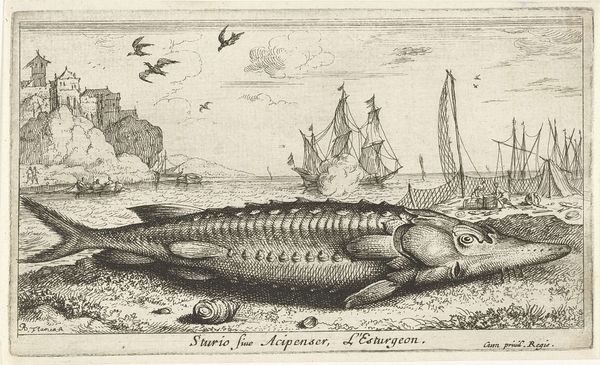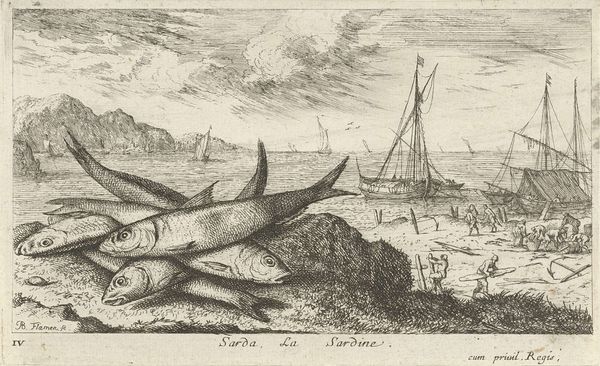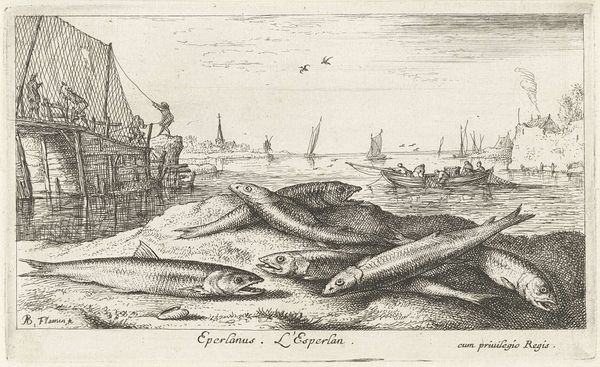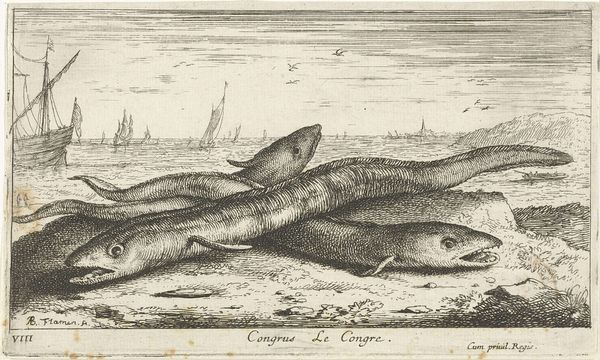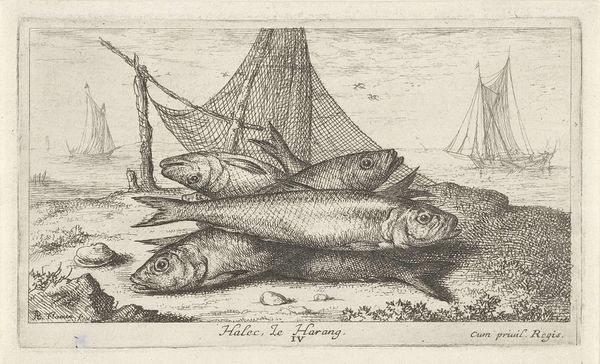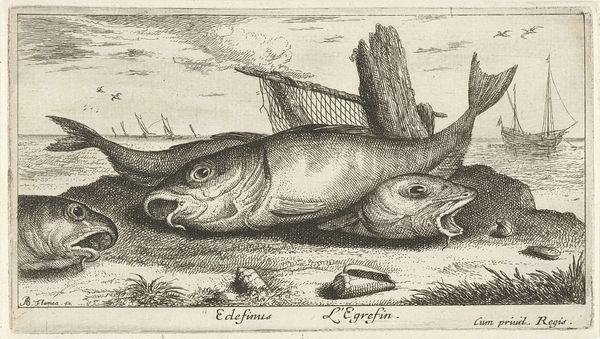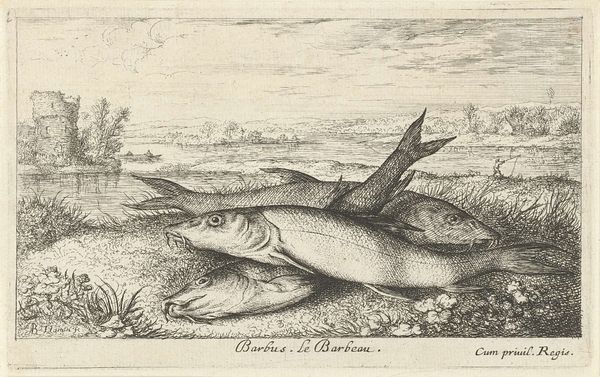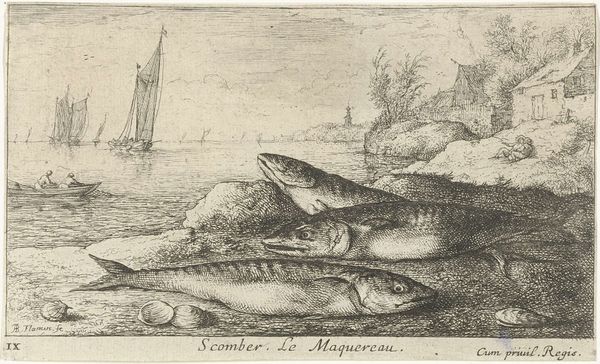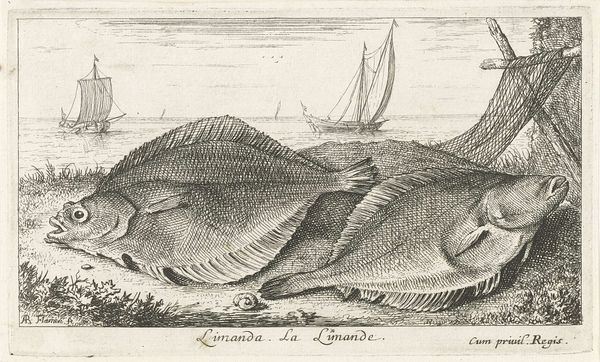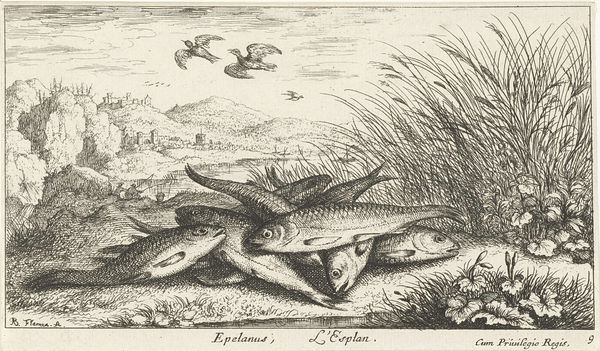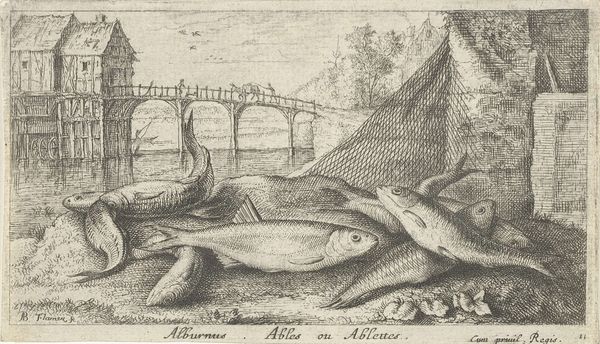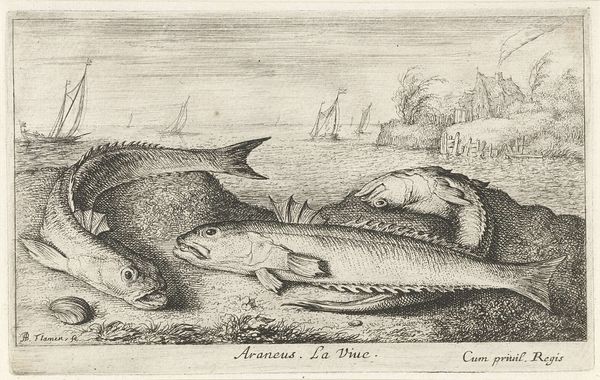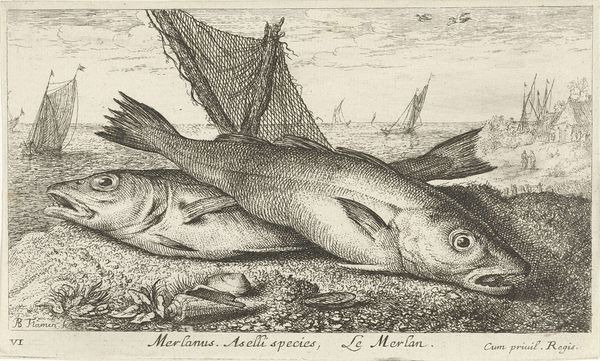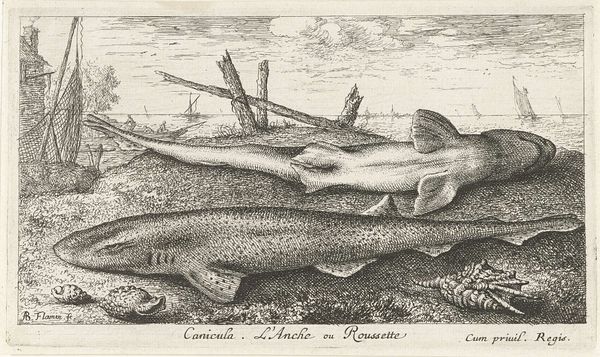
print, etching
#
dutch-golden-age
# print
#
pen sketch
#
etching
#
landscape
#
realism
Dimensions: height 104 mm, width 178 mm
Copyright: Rijks Museum: Open Domain
Albert Flamen created this print of four red mullet on a beach in the 17th century. The arrangement of fish creates a visual connection between the sea and the shore, and by extension, between nature and culture. The still life was popular at this time in the Netherlands and Flanders, and it was often used to create allegories of wealth or morality. In this case, the mullet can be seen as symbols of luxury. During the 17th century, the Dutch Golden Age, the Dutch Republic was a major economic power, and fish were an important part of the Dutch diet. Prints like this were collected into books for wealthy patrons, often those involved with international trade through the Dutch East India Company. As historians, we look at the social conditions that make a work like this possible. Archival research into the artist's biography, the printmaking industry, and the Dutch economy can all help us understand the meanings and context of this image.
Comments
No comments
Be the first to comment and join the conversation on the ultimate creative platform.
